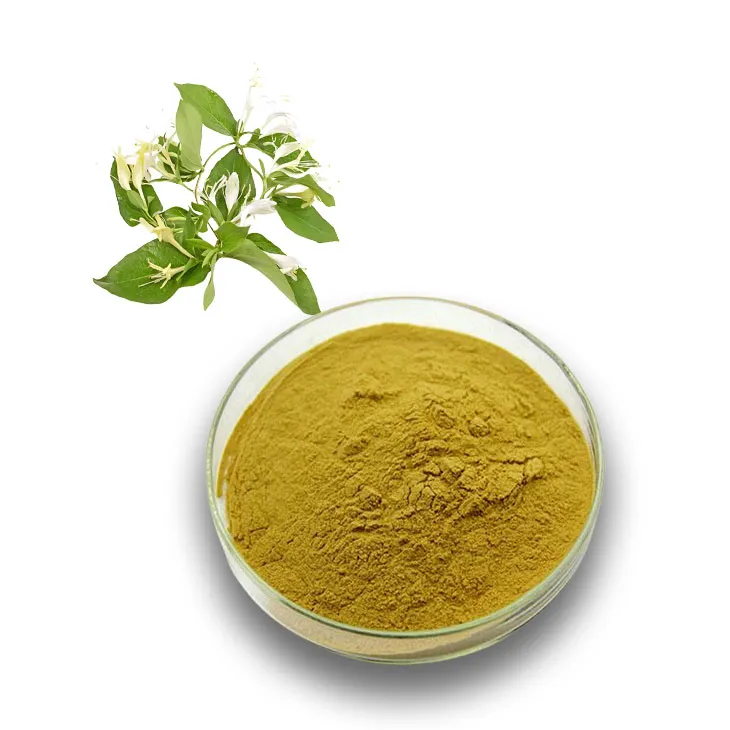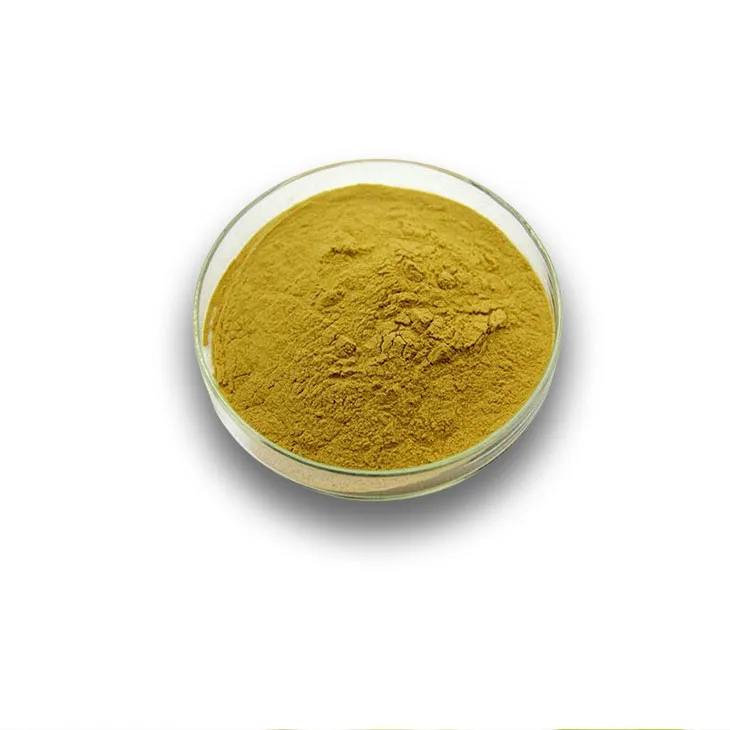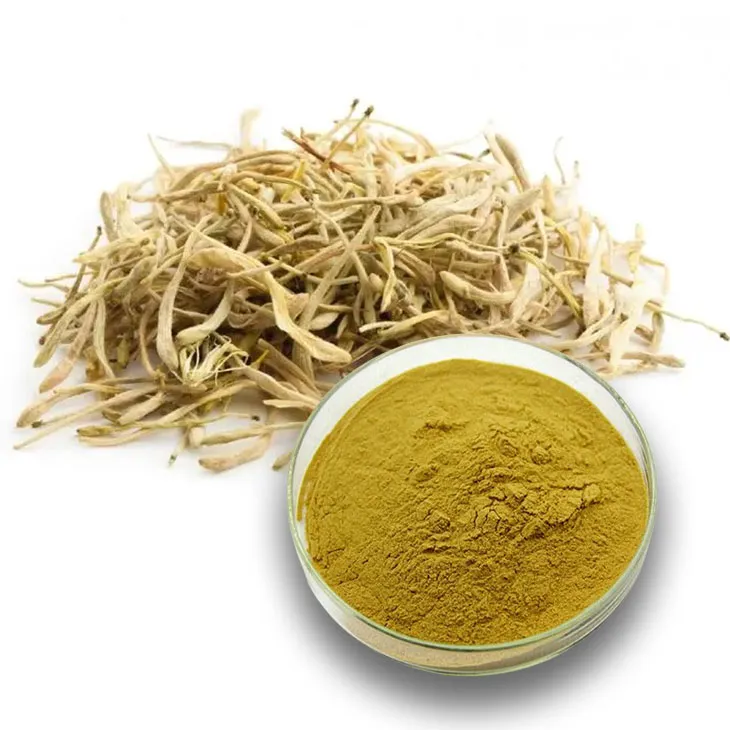- 0086-571-85302990
- sales@greenskybio.com
Standard - process honeysuckle pollen.
2024-12-02

1. Introduction
Honeysuckle Pollen, a product of nature, has been gaining increasing attention in recent years. Through standard processing, it becomes a valuable resource with a wide range of potential applications. Originated from honeysuckle, this pollen is carefully treated by specific procedures to meet various quality requirements.

2. The Standard Processing Procedures
2.1 Collection
The first step in obtaining high - quality Honeysuckle Pollen is proper collection. Honeysuckle flowers are carefully selected at the right time when they are in full bloom and are rich in pollen. Special collection tools are used to ensure that the pollen is gathered without being contaminated by other substances. This process requires precision and care to preserve the integrity of the pollen.
2.2 Cleaning
Once collected, the pollen needs to be thoroughly cleaned. This involves removing any impurities such as dust, small plant debris, and other foreign particles. Cleaning processes may include sieving, air - blowing, or gentle washing methods. The goal is to obtain pure Honeysuckle Pollen, free from any unwanted substances that could affect its quality or safety.
2.3 Drying
After cleaning, the pollen is dried. Drying is a crucial step as it helps to preserve the pollen and prevent the growth of mold or bacteria. Controlled drying conditions, such as specific temperature and humidity levels, are maintained. This ensures that the pollen retains its activity and nutritional value. Slow - drying methods are often preferred to avoid damaging the delicate components of the pollen.
2.4 Testing
Before the processed honeysuckle pollen can be considered ready for the market, it undergoes rigorous testing. These tests include checking for purity, which ensures that the pollen is free from contaminants. Activity testing is also carried out to determine the effectiveness of the pollen in terms of its biological functions. Safety testing is of utmost importance, covering aspects such as the absence of harmful substances like pesticides or heavy metals.

3. Nutritional Components
Honeysuckle pollen is rich in a variety of components, which contribute to its numerous beneficial properties.
3.1 Flavonoids
One of the key components in honeysuckle pollen is flavonoids. Flavonoids are known for their antioxidant properties. They help to neutralize free radicals in the body, which are responsible for causing cell damage and various diseases. In the context of skin - care, flavonoids can play a significant role in anti - aging. By protecting the skin cells from oxidative stress, they can reduce the appearance of wrinkles, improve skin elasticity, and give the skin a more youthful glow.
3.2 Other Nutrients
In addition to flavonoids, honeysuckle pollen also contains other essential nutrients. These may include vitamins, such as vitamin C and E, which further enhance its antioxidant capabilities. Minerals like zinc and selenium are also present, which are important for maintaining overall health. Proteins and amino acids in the pollen are beneficial for cell repair and growth, making it a valuable addition to a healthy diet.

4. Health Benefits
The unique composition of honeysuckle pollen endows it with several health benefits.
4.1 Immune System Enhancement
The components in honeysuckle pollen, especially the flavonoids and other bioactive substances, can help to boost the immune system. A strong immune system is essential for fighting off infections and diseases. By consuming honeysuckle pollen, the body can be better equipped to defend itself against various pathogens. For example, it can stimulate the production of white blood cells, which are the body's first line of defense against bacteria, viruses, and other harmful invaders.
4.2 Anti - Inflammatory Effects
Studies have shown that honeysuckle pollen may possess anti - inflammatory properties. Inflammation is a natural response of the body to injury or infection, but chronic inflammation can lead to various health problems, such as arthritis, heart disease, and certain cancers. The anti - inflammatory effects of honeysuckle pollen can help to reduce inflammation in the body, potentially alleviating the symptoms of these inflammatory - related diseases.
4.3 Digestive Health
Honeysuckle pollen can also have a positive impact on digestive health. It may help to improve the function of the digestive system by promoting the growth of beneficial gut bacteria. A healthy gut microbiota is crucial for proper digestion, nutrient absorption, and overall well - being. Additionally, the pollen's nutrients can support the health of the intestinal lining, preventing issues such as leaky gut syndrome.

5. Applications in Different Markets
Due to its various beneficial properties, processed honeysuckle pollen has promising applications in different markets.
5.1 Food Market
In the food market, honeysuckle pollen can be used as a natural ingredient in a variety of products. It can be added to cereals, granola bars, and energy balls to enhance their nutritional value. As a natural sweetener, it can also provide a unique flavor to food products. Moreover, its antioxidant and immune - boosting properties make it an attractive addition to functional foods, which are designed to provide specific health benefits beyond basic nutrition.
- It can be used in breakfast cereals to add a natural and healthy touch.
- Granola bars with honeysuckle pollen can appeal to health - conscious consumers.
- Energy balls containing the pollen can provide an extra boost of energy and nutrition.
5.2 Health - care Market
In the health - care market, honeysuckle pollen can be formulated into dietary supplements. These supplements can be taken in the form of capsules, tablets, or powders to provide the health benefits associated with the pollen. It can be recommended for people looking to enhance their immune function, improve their skin health, or manage inflammation - related conditions. Additionally, it may be used in traditional medicine preparations, where its natural properties are harnessed for therapeutic purposes.
- Capsules are a convenient form for consumers to take the pollen supplement.
- Tablets can be formulated with other nutrients for a more comprehensive supplement.
- Powder form allows for easy mixing with other substances, such as in smoothies or herbal teas.
5.3 Cosmetic Market
The anti - aging and skin - nourishing properties of honeysuckle pollen make it a valuable ingredient in the cosmetic market. It can be incorporated into skin creams, lotions, and serums. In skin creams, it can help to moisturize the skin, reduce wrinkles, and improve skin tone. Lotions with honeysuckle pollen can provide a light and refreshing feel while also delivering its skin - beneficial properties. Serums containing the pollen can penetrate deeper into the skin, targeting specific skin concerns such as fine lines and dullness.
- Skin creams with the pollen can offer long - lasting hydration.
- Lotions can be used for daily skin care to keep the skin looking healthy.
- Serums can provide more intensive treatment for the skin.
6. Future Prospects
The future of standard - processed honeysuckle pollen looks very promising.
6.1 Research and Development
As more research is conducted on honeysuckle pollen, new applications and benefits are likely to be discovered. Scientists are constantly exploring its potential in areas such as medicine, nutrition, and cosmetics. For example, ongoing research may uncover more precise mechanisms of how it enhances the immune system or its potential in treating specific diseases. This continuous research and development will expand the market for honeysuckle pollen and increase its value.
6.2 Market Expansion
With the growing awareness of natural and healthy products, the market for honeysuckle pollen is expected to expand. Consumers are increasingly seeking alternatives to synthetic products and are more interested in natural ingredients with proven health benefits. As a result, the demand for honeysuckle pollen in the food, health - care, and cosmetic markets is likely to increase. This will lead to more companies investing in the production and marketing of honeysuckle pollen - based products.
6.3 Sustainability
Ensuring the sustainability of honeysuckle pollen production is also an important aspect of its future. As the demand grows, it is crucial to manage the collection of honeysuckle pollen in an environmentally friendly way. This may involve sustainable farming practices, protecting the natural habitats of honeysuckle plants, and promoting responsible collection methods. By maintaining the sustainability of production, the supply of honeysuckle pollen can be ensured for the long - term, while also protecting the environment.
7. Conclusion
In conclusion, standard - processed honeysuckle pollen is truly a nature's gift. Through a series of standard procedures, it is transformed into a valuable product with a rich nutritional profile and numerous health benefits. Its applications in the food, health - care, and cosmetic markets are diverse and promising. With continued research, market expansion, and a focus on sustainability, honeysuckle pollen has the potential to become an even more important and widely - used natural resource in the future.
FAQ:
What are the standard procedures for processing honeysuckle pollen?
The standard procedures for processing honeysuckle pollen typically involve steps such as collection from reliable sources, cleaning to remove impurities like dust and other foreign particles, drying under controlled conditions to maintain its properties, and sometimes additional purification steps to ensure high - quality. However, specific procedures may vary among different producers and research institutions.
How does honeysuckle pollen enhance immune function?
Honeysuckle pollen is rich in flavonoids and other bioactive components. These substances can stimulate the body's immune cells, such as macrophages and lymphocytes, to function more actively. They may also help regulate the body's immune response system, making it more efficient in defending against pathogens and foreign invaders.
What makes honeysuckle pollen effective in anti - aging for skin - care?
The flavonoids and other antioxidant components in honeysuckle pollen play a key role in anti - aging for skin - care. Antioxidants can neutralize free radicals in the skin, which are known to cause damage to skin cells and accelerate the aging process. By reducing this damage, honeysuckle pollen can help maintain skin elasticity, reduce wrinkles, and improve overall skin health.
Is processed honeysuckle pollen safe for consumption?
When processed following standard procedures, honeysuckle pollen is generally considered safe for consumption. The standard processing ensures that contaminants are removed and the pollen's quality and safety are maintained. However, as with any natural product, some individuals may have allergic reactions, so it is important to be cautious, especially for those with known pollen allergies.
What are the potential applications of honeysuckle pollen in the food market?
In the food market, honeysuckle pollen can be used as a natural ingredient in various products. It can be added to health - promoting foods such as energy bars, granola, and some types of desserts. Its nutritional value and unique flavor can enhance the appeal and functionality of these food products.
Related literature
- The Nutritional and Functional Properties of Honeysuckle Pollen"
- "Standardized Processing of Botanical Pollen: A Review with Focus on Honeysuckle"
- "Honeysuckle Pollen in Health - care and Cosmetic Industries: Current Research and Future Prospects"
- ▶ Hesperidin
- ▶ Citrus Bioflavonoids
- ▶ Plant Extract
- ▶ lycopene
- ▶ Diosmin
- ▶ Grape seed extract
- ▶ Sea buckthorn Juice Powder
- ▶ Fruit Juice Powder
- ▶ Hops Extract
- ▶ Artichoke Extract
- ▶ Mushroom extract
- ▶ Astaxanthin
- ▶ Green Tea Extract
- ▶ Curcumin
- ▶ Horse Chestnut Extract
- ▶ Other Product
- ▶ Boswellia Serrata Extract
- ▶ Resveratrol
- ▶ Marigold Extract
- ▶ Grape Leaf Extract
- ▶ New Product
- ▶ Aminolevulinic acid
- ▶ Cranberry Extract
- ▶ Red Yeast Rice
- ▶ Red Wine Extract
-
Nutmeg Extract
2024-12-02
-
Artichoke Leaf Extract
2024-12-02
-
Curcumin Extract
2024-12-02
-
Epimedium extract powder
2024-12-02
-
Grapefruit Seed Extract Powder
2024-12-02
-
Thunder God Vine Extract
2024-12-02
-
Kidney Bean Extract
2024-12-02
-
Rosemary extract
2024-12-02
-
Aguaje Extract
2024-12-02
-
Tormentil Extract
2024-12-02





















